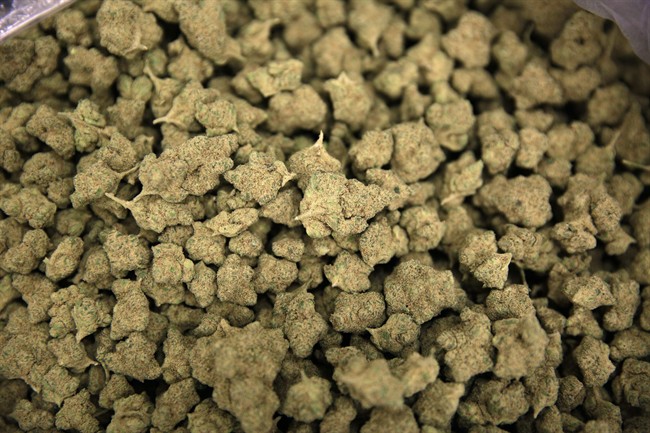Saskatchewan released the bulk of its legal cannabis framework on March 14, but there are still lingering questions about the looming legalization. Questions such as how will it be taxed and priced in a way that will contribute to the black market going up in smoke.

Justice Minister and Attorney General Don Morgan said that information will be released in the April 10 provincial budget, but hinted that sin taxes may be applied in addition to the federal tax on pot sales.
“We know that there’s the federal tax that’s on it, and they’ve indicated how that will be shared. So we have to look and see what the revenue will be from there, and then the finance minister would decide what room there is,” Morgan said.
The federal government has agreed to give the provinces and territories 75 per cent of marijuana tax revenue. Ottawa will collect the remainder.
Whatever direction the province takes on taxation, there will be a delicate balancing act in not making it too inexpensive but remaining competitive with black market prices. Federal estimates place the street cost of marijuana at $8 – $10 per-gram.
- ‘Alarming trend’ of more international students claiming asylum: minister
- TD Bank moves to seize home of Russian-Canadian jailed for smuggling tech to Kremlin
- Why B.C. election could serve as a ‘trial run’ for next federal campaign
- Justin Trudeau headed to UN Summit of the Future amid international instability
“There’ll have to be a retail market on it, a federal tax component and a provincial tax component,” Morgan said. “The expectation is that we will still be able to maintain, or hope to be able to maintain so that it is cheaper than what a black market product would be or that it’s at least comparable enough that a person would rather buy from a regular retailer than a black market.”

Get daily National news
Morgan stressed that the province does not want to be in direct competition with the black market, and hopes people would be willing to potentially pay more for a product with the knowledge they aren’t breaking the law.
READ MORE: Saskatchewan sets minimum cannabis use age at 19, rolls out framework
Justice critic Nicole Sarauer said that while the government decides their minimum price and taxation structure for pot, they need to consider the viability of potential small business owners.
“They want jobs and they want to bring that money and that opportunity for business and for the economy to our province, and keep that benefit in the province,” Sarauer said.
A financial stress test in the permit application process has Sarauer concerned that only big business will be viable in putting forward successful proposals for cannabis storefront retail permits.
The fact that the request for proposals on those permits closes on April 10, the same day as when tax and price information is expected to be unveiled in the provincial budget, is another red flag for Sarauer.
“That’s one of the reasons why it’s such a problem that the Sask Party has moved so slow on this. There are still so many unanswered questions for businesses, so that when they are putting forward their proposals and they are trying to decide if this is a smart business move for them there are a lot of questions that are left unanswered,” Sarauer critiqued.
The province is not including a line item in the provincial budget for marijuana revenue or expenses because there are too many unknowns at this point. The hope is it is revenue neutral.
Morgan said the plan is not to include pot revenue in future revenue sharing discussions with municipalities.
The Regina Police Service have estimated legal marijuana will cost the service $1.2 million in training, enforcement and equipment expenses. Morgan says the province is currently baring the cost of training Drug Recognition Experts, and have further discussions on revenue once more is known.








Comments